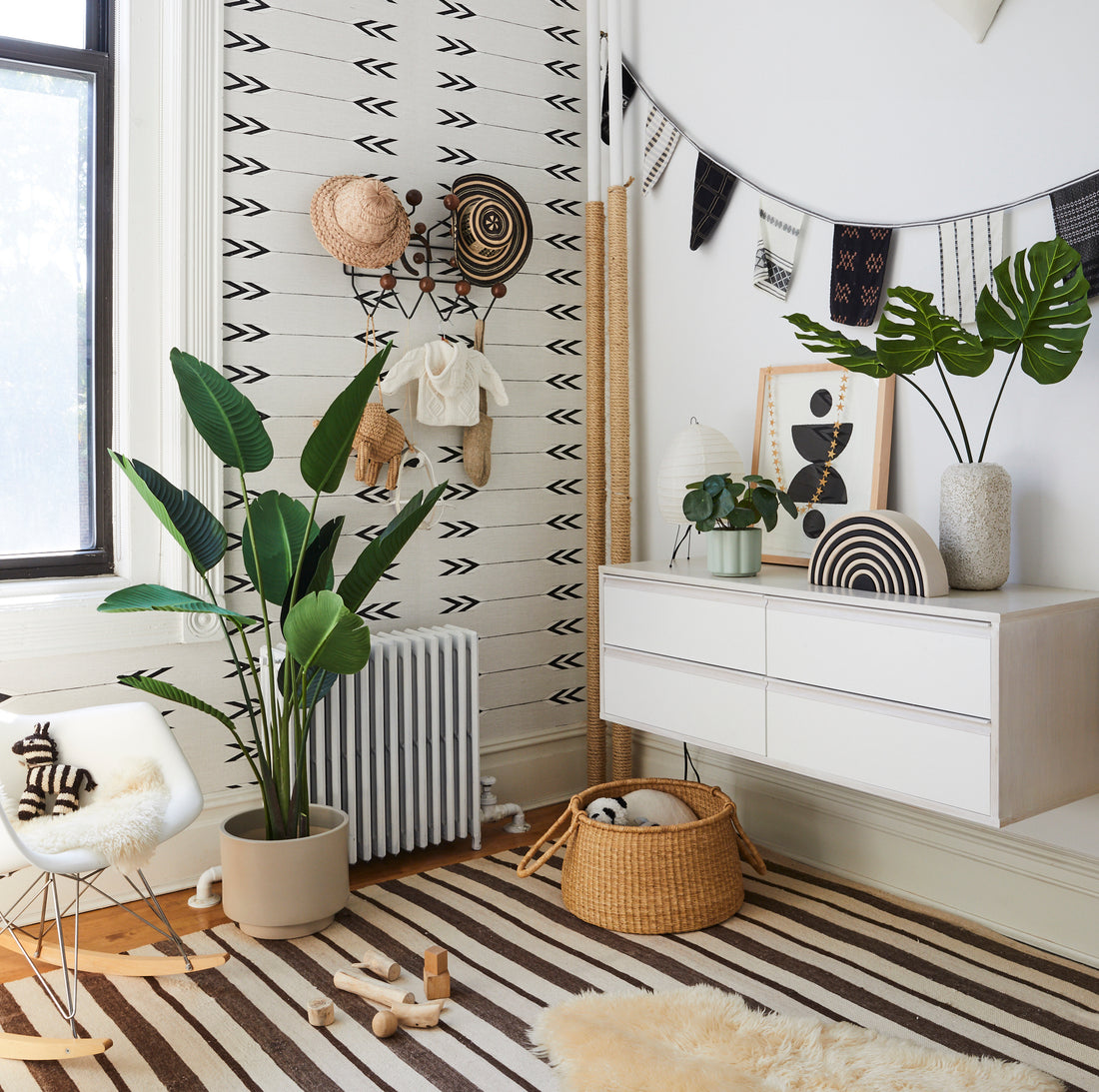
Ask The Sill
The Best Plants for Your Nursery
When you grow plants in your baby’s nursery, you are instilling a love of nature in your baby that will last a lifetime. By choosing non-toxic plants, you can ensure that your baby’s first exposures to nature are not only inspiring and exciting, but safe.

Choose non-toxic plants for your baby’s nursery to ensure their first exposures to nature are not only inspiring and exciting, but safe.
In their natural habitats, plants support the surrounding ecosystem in so many ways—providing oxygen, shelter, and food for a diverse community of animals, insects, and micro-organisms. Sometimes, these other creatures become over-zealous in munching on plants, and to protect themselves, certain plants have developed spines; thorns; or toxic compounds that can pose a hazard to animals, as well as people, if ingested. Other plants, on the other hand, have not needed to develop protection and, consequently, remain safe for both people and animals.
As you fill your baby’s nursery with plants, it is important to choose those safe, or non-toxic, plants that can be safely handled by your baby. As a part of our partnership with The Honest Company, we are highlighting a few of our favorite baby-friendly plants.

The Peperomia Obtusifolia is one of our most adorable offerings, with perky stems and wide, glossy leaves. It is even nicknamed “baby rubber plant” because of its size—making it the perfect petite companion for your little one. Easy to care for, it will lend a lush, tropical, and jungle-like feel to your baby’s nursery; being on the succulent side, it can also withstand a little (light) roughhousing from budding baby green thumbs.
A Parlor Palm is a great first plant for infants, as it features long, light fronds that sway and dance when your baby touches them, almost like a mobile. A resilient plant, it will grow up alongside your baby, reaching up to six feet indoors when properly cared for over many years. Like the Peperomia, it will add a tropical and evocative quality to any space, as well. In fact, it has been embraced in interior design since it was first cultivated as a houseplant, in the Victorian era.
The Ric Rac Cactus is one of the more whimsical species in the plant kingdom, thanks to its ric rac- or fishbone-shaped trailing stems, which are child-friendly (no cactus pricks if they handle it gently). With bright light, these stems will grow long enough to prune and propagate in water, making for an activity your baby can enjoy as they grow older. Your cactus may even occasionally delight your baby with a night-blooming flower.
The Pilea Peperomioides has a quirky, playful quality—its unique leaves have been likened to pancakes, UFOs, coins, and more. Not only is it easy to care for, but it can propagate entirely on its own, producing sweet little babies or “pups” that pop up from the soil surrounding the mother plant. These pups can be repotted into separate containers to make more plants, or you can teach your baby sharing by encouraging them to give these pups to new friends.
Although Orchids are sometimes called difficult, the Phalaenopsis variety is affectionately called the beginner orchid, as it is an easy plant to care for. This is a great option for small children—your baby will be captivated by its blooms’ distinctive shapes. If you are raising older children, though, they, too, will benefit from caring for an Orchid as you teach them about epiphytes and celebrate their success when their orchid annually reblooms.
And last but not least, faux plants are a great option if you want to add some greenery to your nursery, but plan to keep the shades drawn (no or limited natural light) or don't have time to care for new plants.

Photo by Bricia Lopez for The Honest Company
When you grow plants in your baby’s nursery, you are instilling a love of nature in your baby that will last a lifetime. By choosing one of the above varieties, you can ensure that your baby’s first exposures to nature are not only inspiring and exciting, but safe.

Words By The Sill
Empowering all people to be plant people—a collection of articles from The Sill's team of plant experts across a variety of plant care topics to inspire confidence in the next generation of plant parents. Welcome to Plant Parenthood™.
Do Some Plant Shopping